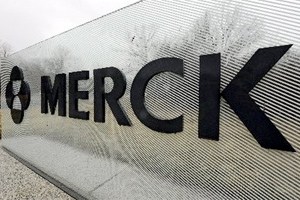 Merck & Co has decided to exit hepatitis C virus (HCV) drug development, making its $3.85bn deal to buy Idenix three years ago look like an expensive gamble.
Merck & Co has decided to exit hepatitis C virus (HCV) drug development, making its $3.85bn deal to buy Idenix three years ago look like an expensive gamble.
At the time of the acquisition, the US pharma company insisted that there were so many HCV patents around the world needing treatment that there would be fertile market for the new generation of directly-acting antiviral drugs for many years to come.
This turned out to be an over-confident prediction, with the HCV market already contracting as a result of pricing competition and a shrinking patient pool. And in the interim, the drugs used to treat HCV have largely been produced by Gilead Sciences, with AbbVie and Merck jostling for a distant second place. Now, with Gilead and AbbVie reporting shrinking sales and Johnson & Johnson (J&J) deciding it is time to get out of HCV R&D, Merck has decided it is time follow suit.
The company has discontinued two-drug and three-drug regimens that were intended to serve as new-generation treatments for the viral infection, cutting treatment times and expanding the range of HCV genotypes covered.
Cast aside are MK-3682B (grazoprevir/ruzasvir/uprifosbuvir) and MK-3682C (ruzasvir/uprifosbuvir), candidates which at one point were being held up as having the possibility to clear infections in as little as four to six weeks, compared to the 12-week and latterly eight-week courses needed for currently approved therapies.
The decision has been based on “a review of available phase II efficacy data and in consideration of the evolving marketplace and the growing number of treatment options available for patients with chronic HCV infection”, said Merck.
The decision leaves Merck with Zepatier (elbasvir/grazoprevir) as its only product in the HCV category, and one which has made headway in the market with sales leaping ahead to $895m in the first six months of the year. The new decision comes after it already booked a $2.9bn impairment charge related to the HCV programme earlier this year.
In the same period, Gilead’s HCV portfolio of Harvoni (sofosbuvir/ledipasvir), Epclusa (sofosbuvir/velpatasvir) and Sovaldi (sofosbuvir) brought in $5.44bn, down from around $8.3bn in the first half of 2016 on pricing pressure and as the pool of patients available for treatment shrinks.
AbbVie meanwhile has seen its first-generation Viekira (ombitasvir/paritaprevir/ritonavir/dasabuvir) product hit by competition, with sales declining 40% to $488m in the first half. The company has just secured US approval for new combination Mavyret (glecaprevir/pibrentasvir) which needs to be administered for just eight weeks and has been launched at a discount to its rivals, and is expecting to claw back market share.




